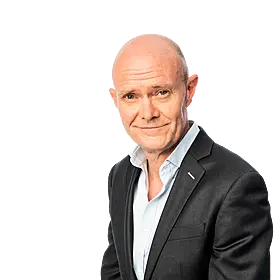A representative group has rejected claims that dyslexia is a ‘middle-class disorder.’
It comes after a Durham University Professor told Newstalk that the term dyslexia should be abandoned altogether.
On Newstalk Breakfast yesterday, Julian Elliot, Professor of Educational Psychology at Durham University and Author of “The Dyslexia Debate” said there is no difference between a dyslexic and a poor reader.
“We have no meaningful criteria to differentiate between a so-called dyslexic poor reader and another poor reader,” he said.
“There are no criteria. The criteria people suggest are just criteria for poor reading generally.
“The second problem is, even if you could do this, there is absolutely no treatment for a dyslexic child that is additional to or different from what you would do for any other poor reader.
“My criticisms threaten a multi, multi-million-dollar industry of assessment so of course that is going to ruffle feathers.”
Diagnosis
On the show this morning, Rosie Bissett, CEO of the Dyslexia Association of Ireland (DAI) said there are many academics out there that disagree with Professor Elliot.
“Yes, it is possible to diagnose dyslexia,” she said.
“There are a lot of neurological markers that, when a child or an adult is being assessed, you can identify a clear dyslexic-type profile in terms of how they learn.
“I think we would tend to come at dyslexia from a rights-based approach. Individuals have a right to learn about themselves. They have a right to understand how they learn and they have a right to have their needs identified.”
Assessment
She said she shares Professor Elliot’s concern regarding low diagnosis of the disorder among lower class children and warned that that Ireland has a “systemic problem with access to public free assessment.”
“There needs to be much greater access to assessment,” he said.
“A child, irrespective of where they live or their parents socioeconomic situation, should have the same ability to have their difficulty or their needs identified and met.
“We have been actively asking that trained specialist teachers would be able to identify dyslexia in schools so that this could be something that was done easily in schools without creating barriers.”
Dyslexia
Ms Bissett said there are “some merits” to some of Professor Elliot’s arguments but said the DAI would “absolutely differ” on his final conclusion that the term itself does not have value.
“We would agree that children with reading difficulties, whatever the cause, deserve to have their needs identified early and get appropriate help,” she said.
“So, I would agree with him in that regard. But to say that children with dyslexia should not get a diagnosis because another child has a reading disability for another reason – such as they had a health problem so they missed a lot of school.
“Those two things are very different things and you do a disservice to both by pretending that somehow, they are the same issue.”
Ireland
Ms Bisset said some of Professor Elliot’s criticisms are “probably more valid in other jurisdictions.”
“In Ireland, for most of our supports, it actually doesn’t matter if you have a diagnosis of dyslexia or not in terms of whether you get supports in school, or exam accommodation for that matter,” she said.
“But it does often matter very much for the mental health, the self-esteem, to the understanding for everyone of what is going on, to have that knowledge.”
You can listen back here:
You can also listen back to Professor Elliot’s interview here:









